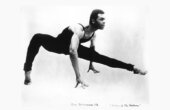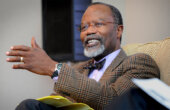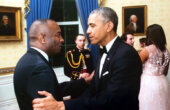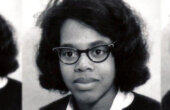Kofi Annan: Reflections on the Black Experience at MIT
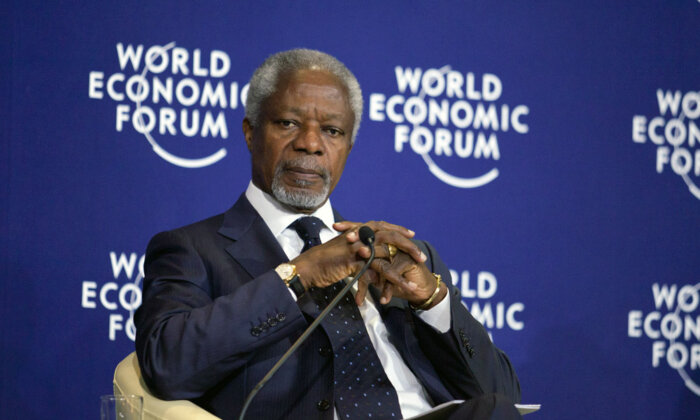
The discussion featured below is edited and excerpted from an oral history interview conducted by Clarence G.Williams with Kofi A. Annan in New York City, 7 August 1997. It first appeared in the book “Technology and the Dream: Reflections on the Black Experience at MIT, 1941–1999” which is freely available for download here. Several interviews from the book have been made available on the MIT Press Reader as part of our Reflections series.
Kofi Annan was the seventh secretary-general of the United Nations and the first black African to lead the organization. In 2001, four years after this interview was recorded, Annan and the United Nations were jointly awarded the Nobel Peace Prize “for their work for a better organized and more peaceful world.” “Peace must be sought, above all,” Annan stated in his acceptance speech, “because it is the condition for every member of the human family to live a life of dignity and security.” Kofi Annan died in 2018 at the age of 80.
Both my parents died a few years ago, but at a ripe age of 91 for my father and 90 for my mother. My father worked in the commercial area, for a branch of UNILEVER — known as the United African Company, Ltd. — and he became one of the directors of the company in Ghana. He also came from a family where he could have chosen to be a chief if he wanted to. I have three sisters and a brother. I had a twin sister who unfortunately passed away five years ago. I have a brother here in the States, who is in business. My other sisters and nephews and nieces are in Ghana, but my late sister’s sons are studying here to give them a chance to prepare themselves for the future.
What was it like growing up in Ghana in the 1940s and ’50s? I was fortunate in that I grew up at a time when the struggle for independence was at its peak. As a young person, I witnessed that struggle and the discussion about independence, about the role of the British, and when the Ghanaians should take over. All of this took place around me at home, at school, and with friends. My father and friends were all very actively engaged in these discussions. I was also fortunate enough to see the success of that operation. So I grew up in an atmosphere where change was possible, all was possible — and you could do things. I didn’t have a sense of inhibition that you shouldn’t even dare change things, because I lived it and I saw it happen. I walked out with a feeling that change is possible; it can be done, however monumental. That was a wonderful feeling for me, for a young person to have.
I grew up in an atmosphere where change was possible, all was possible — and you could do things.
I recall a particular incident. I was at boarding school, and one of our teachers came up and put a broad sheet of paper — three feet by three feet — on the board, with a little black dot in the right-hand corner. He said, “Boys, what do you see?” There were about 40 of us in the class. We all shouted in unison, “A black dot!” He stepped back and said, “So not a single one of you saw the broad white sheet of paper. You all saw the black dot. This is the awful thing about human nature. People never see the goodness of things and the broader picture. Don’t go through life with that attitude.”
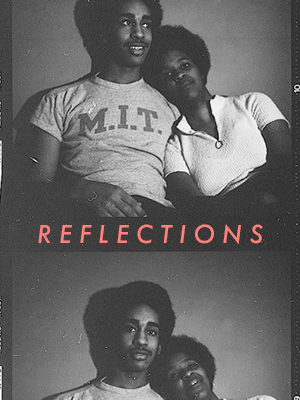
I’ve never forgotten that lesson. We are constantly doing this. Reader’s Digest did two terrible series of articles about the UN, and I wrote to them using this example. I said, “The UN has a solid record of achievement, but you are focusing on the black dot. I believe your readers deserve a better Digest.” They never published the letter.
You studied at the University of Science and Technology in Kumasi. What were your career goals at that time, and what was the experience like there?
It was an exhilarating and exciting experience. There was a dynamic group of young people studying at the university immediately after independence. Again, that same spirit — “We are going to develop the country, we are going to change the world, we are going to change Africa. ”We were all very engaged. We studied hard. We formed some long-lasting friendships. We all had our dreams. Perhaps at that time my dream was to get a good education and then come back to work and help build an independent Ghana. I think this was also the spirit which motivated quite a lot of my fellow students in those days. Politically, we were highly aware. We were also conscious of the responsibility and the opportunities we had to be given a good education and, above all, the possibility of playing a role in rebuilding this newly independent country. Then I got a grant to come to the States. I ended up at Macalester College.
That was one of the next things I was going to ask you about. What was that education like at Macalester College in St. Paul? Were there any other African students there? Did any people there play a major role in your career?
Yes. In fact, I went to Macalester because I got a Ford Foundation grant. They had a program called the Foreign Student Leadership Project. Through that program, they brought foreign students who they considered had leadership ability to study in the States. They placed them in quite a lot of American universities. The students were from Africa and other continents, but mainly from the third world. I’m still in touch with some of them. They’ve gone on to do some very interest- ing things in their own countries.
I was the only African at Macalester at the time. The student population was about 1,600, and it hasn’t grown very much. It was also my first winter, so you can imagine for a tropical child that was really extraordinary.
Quite an experience.
Yes. I don’t know if you heard my story about earmuffs, which has become quite famous in Minnesota by now. I went to speak at the college and I told them of an experience I had as a student. As a tropical child, having to put on layers and layers of clothing to go through the winter was very cumbersome for me, but I decided it was necessary because you could feel the cold. But there was one item that I was determined not to use — earmuffs. I thought they were inelegant. I was not going to touch them, until one day I went out to get something to eat and my ears nearly froze. I went and got the biggest pair I could find. I came away with a lesson from that experience; that you don’t walk into a situation and pretend you know better than the natives. That lesson has also stayed with me. Look around you and listen to them. They know the environment better than you can.
I came away with a lesson from that experience; that you don’t walk into a situation and pretend you know better than the natives.
The education at Macalester was good. We had some wonderful teachers — like Professor Mittau, who was very strong in government and had this sense that public service was the thing to do. They were able to bring in some fascinating leaders, people like Hubert Humphrey who had gone to school there. Walter Mondale and other politicians often came back to campus to speak and one could relate to them. Macalester was also one of the schools that flew the UN flag from the beginning. So there was a UN flag flying with others — incredible, right from the beginning. The school has now become very international, but it has always espoused an international approach and diversity.
Were your career plans firmed up by the time you left Macalester and headed for graduate work at the Institute of Higher International Studies in Geneva? Had you decided by then on working in the diplomatic service or some international agency?
Not at that time. In fact, I was interested in international affairs and what was happening in the world. I was very much engaged. But that summer — two summers, the summer before I graduated and the summer I graduated — I worked for Pillsbury in Minnesota and also here in New York, at 30 Rockefeller Plaza. At that time Pillsbury was thinking of opening a big factory in Ghana and producing flour and processing food. Since I had been quite interested in seeing my own country develop, I had the intention of joining them and working for them in Ghana. My boss, Bill Spoor, subsequently became the chairman of the company, but much later.
I went to Geneva with the understanding that I would do graduate studies and then join them. Whilst I was in Geneva, the deal fell through. At that time Ghana was going in the socialist direction and decided that Romania would build the factory for them, therefore they didn’t need Pillsbury, which had bought a plot of land and everything. Of course, the mill wasn’t built until years later.
So I studied in Geneva and had gone to work in Paris, when a friend sent me an advertisement that the World Health Organization was looking for someone. He thought I might be interested. I applied and joined the international system in Geneva. I started with the World Health Organization as administrative officer trainee. I thought I would do two years and then go home and help build Ghana. I still have that dream. One thing led to another. After a couple of years in Geneva with the World Health Organization, I was determined to go to Africa and make a contribution. They had two offices in Africa — Brazzaville, Congo, and Alexandria, Egypt. I asked them to assign me to one or the other so that I could make a contribution on the continent. They wouldn’t do it, so I resigned. I resigned and went to Ethiopia for six years to work for the United Nations Economic Commission for Africa. I worked in Ethiopia from 1965 to 1971. I did what I wanted to do, make a contribution to the continent. It was from Ethiopia that I came to the Sloan School at MIT.
How was that experience as a Sloan Fellow?
It was a unique experience and a very useful one. By the time I left Addis Ababa I had been doing lots of deep thinking and asking lots of questions, questions one would perhaps normally ask much later in life. I was in my early thirties. What am I about? Who am I? What am I doing? Where do I want to go and why? I really needed time to step back, to think, to reflect, and to do something. So I decided to take a year. I almost did it in 1970. I came to Sloan in 1971. I had been offered a place in 1970, but my boss said, “I need you. We’re going to do this ministerial conference for ministers of finance and industry for Africa in Tunis. You are one of the key people handling it and I cannot let you go, so give me another year.” So I asked MIT to postpone it for a year.
I came to MIT in 1971. It was very useful. There we were, a group of dynamic young people — each believing he was a leader, each believing he was born to lead or had achieved a lot, each determined to prove that he was the best. It was a very competitive atmosphere. Of course, one gets swept up in this. Everyone goes along. After about six weeks or so, I had to ask, “Well, what’s all this? Why do I have to do it their way?” So I went for a long walk along the Charles River. I decided, “I don’t have to get swept up in this frenetic attitude. I have to do it my way. I don’t need that. I should listen to my own inner drummer and do it my way.”
That sort of decision, that sort of inner compass that makes you do things at your own pace in your own way, also gives you considerable freedom and strength.
That sort of decision, that sort of inner compass that makes you do things at your own pace in your own way, also gives you considerable freedom and strength. It allows you to participate but also to stand back and observe. In the process, I learned a lot. I got to know these guys. We worked together. Quite a few of them came to the same conclusion, though it took some of them much longer. They began to relax. They began to have a bit more fun. I think you’d find they learned much more in that mode than in the earlier mode.
An aside. My wife and I have been host parents for African students for about 20 years. You remind us so much of a young man whom we actually became family to when he was a freshman. He just got his Ph.D. at MIT in electrical engineering.
What’s his name?
John Ofori-Tenkorang.
That’s very good. I met one of them when I was in Boston recently. Willard Johnson and I did something there. The student probably was one of the Ghanaian students.
In your commencement address at MIT, you talked a little bit about this kind of competitiveness you just spoke of. But do you recall, were there any people there who were influential for you? Or was it the atmosphere of the place that you remember the most?
You had the atmosphere, and there were a couple of my own fellows and also a couple of professors who were doing research and searching in direc- tions that interested me very much. I got to know Ed Schein and Lester Thurow quite well. Bill Pounds was there at that time and so was Peter Gil.
Yes, I know all of them very well.
I was quite interested in the work that Schein was doing in group dynamics and interpersonal dynamics, which was useful in getting one to understand one’s environment and one’s relationship to others. At the beginning I was quite shocked — well, shocked perhaps is too strong a word. I was surprised that these successful, macho, strong colleagues of mine were hesitant about getting into that sort of work. I recall one day a very interesting experience. We had had a discussion — I think we had a group of 40 or 44 — and I had proposed that we should do more work in this area of group and interpersonal dynamics, because in the final analysis it boils down to people’s problems. If you’re going to be dealing with people, you need to understand their relationships and how they impact others and how they impact you. I realized the group was very uncomfortable with that. So Ed Schein said, “Kofi has made a proposal. What do you think?” There was silence in the room. A hand went up and one fellow said, “Well, he’s got his answer; it’s loud and clear.” And Ed asked, “What was that?” He said, “Dead silence, that’s what we think of his proposal.”
It came home to me how threatened they felt when such sensitive questions were asked, when certain things had to be confronted — Who are you? Who am I? Where am I? It can be quite unsettling.
There was an interesting English fellow in the group who was a friend of mine and who was also interested in this. He said, “Well, we can start with dreams. Everybody dreams. We would all like to understand that. Why can’t we start with dreams, for example?” And the fellow came back — the first fellow — and said, “What kind of dreams are you talking about, whilst you are asleep or whilst you are awake?” So my English friend shot back, “I don’t think it much matters since some of us don’t know when we are asleep and when we are awake.” So Ed said, “Why don’t you break up for ten minutes, talk among yourselves, and then come back — have coffee and come back.”
We broke, and I went to the coffee machine to get some coffee. These tough, big, successful guys walked up to me and said, “Look, Kofi, we have built up this system of life for ourselves and it works. Before you and Schein decide to mess around with it, you’d better decide what else you’re going to replace it with.” Then it came home to me how threatened they felt when such sensitive questions were asked, when certain things had to be confronted — Who are you? Who am I? Where am I? It can be quite unsettling. I think it is not a question that one can just ask. You need to perhaps get to a certain level of maturity and development for those things to come to you naturally. Maybe it cannot be imposed until one is ready. If you are not ready, it can be unsettling.
You attended universities — Macalester and MIT — during the civil rights movement. What was your impression of the civil rights movement? What was your impression of Martin Luther King, Jr., and other civil rights activists, as well as of their opponents?
I think it was an important era for this country in the 20th century. You had in Martin Luther King and other human rights leaders individuals who through their own leadership abilities were able to raise the national consciousness, who went beyond the plight of one group or another and basically indicated that as a nation, we were not doing what we committed ourselves to do under the Constitution, that we were not looking after the less fortunate in our midst, and that we needed to act. I think those who had chosen to ignore the problem, those who had not been sensitive or aware enough to act, or those who felt nothing could be done about it and therefore were resigned, were all motivated to confront the issue and try and do something.
So I thought it was very positive. In all periods of change of that kind, there are some excesses which come with the effort to bring about a change in the established order. But I had a great deal of admiration for Martin Luther King and other civil rights leaders, and also for leaders like Kennedy who were sensitive to the cries of these leaders. It takes two to tango. For somebody like me, having as I said grown up in pre-independent Ghana where the search and the struggle for freedom was the atmosphere or the environment, it was fascinating for me to be here at that time and see the changes that were being brought about.
You mentioned the time in Ghana as well. One of the things that are clear is that you interrupted your civil service career and worked for a few years in Ghana.
Yes, I did.
What was that like? These were in a way troubled times there.
Yes. It was part of that same dream to want to go back, to want to do something for the country. I went back. I left the UN and went back to Ghana as the managing director of the Ghana Tourist Development Company. It was a desire to serve. It had nothing to do with money or conditions of service. In fact, several of my friends and colleagues thought I was crazy. They said, “How can you quit the job you have and go home and take on something with a salary that is less than the rent you pay each month?” I said, “I think we should serve and I am going to try and do my best.”
Several of my friends and colleagues thought I was crazy. They said, “How can you quit the job you have and go home and take on something with a salary that is less than the rent you pay each month?”
It was a very fulfilling and exciting period, but at the same time frustrating — frustrating in the sense that the timing was perhaps not appropriate. But the mood of those in leadership, their sense of direction was still in the direction of socialism and determination to control what they called “commanding heights” of the national economy. They were more into control than creativity and getting the people to do things, energizing the people, getting individuals and groups to do things. In fact, some of the things I suggested we should do and they resisted have been done, but almost 15 years later. It was also a military regime at the time. We kept arguing and trying to explain to them. Of course, they were not used to that sort of discus- sion. They were used to giving orders, and I was not very good at taking orders. I felt we should be able to discuss issues and really do what was right for the country.
So I established some plans, developed some blueprints, and then told them that maybe what it took to get things done in that atmosphere were skills and talents that I didn’t have. I saw so much that could be done and so much that could be achieved with very little money, with just good organization and dedication. Most of the countries in Africa are suffering from the effects of accumulated mismanagement. There are talented people, there are resources, but they don’t always get the chance to do what they have to or what they want to. I think when we look around us, we see from the case of Japan or Malaysia or others that development is a question of people, not necessarily of natural resources. There are good people who have sometimes not been given a chance to do things. Unfortunately, there are also lots of talented people who are outside the country. We have to find some way of reversing that brain drain and getting them back home, getting them to go the other way.
I recall an incident during that period in Ghana. We had so much to do. I was working very long hours, at a rather fast pace. Once we were going to look at a site where we wanted to put a tourist village. We were walking very briskly and one of my assistants who was a bit slow was panting and trying to keep up with us. A friend stopped him and said, “Are you all right?You seem to be panting.” He said, “Oh, I’m okay. I have a new managing director who is so active and so dynamic — pushing us in all directions, wanting us to do everything straight away.” The fellow said, “Who is this?” I was within earshot, but he didn’t know. He added: “Where’d he come from?” My assistant said, “He just came from Geneva. He’s been here a week. He came from Geneva and he wants to do everything.” So the other one said, “Don’t worry, the heat will slow him down.”
The heat had nothing to do with it. In other words, their point was,“I’m not going to adapt and change to this new pace and all that. We’re going to slow him down and the heat is on our side.”
As a career diplomat, you have worked your way up through the ranks of the international civil service to hold important positions in the United Nations. What have you learned that you would pass on to young blacks worldwide who seek to be successful in careers such as yours?
My advice to them is to be disciplined, work hard, show good judgment, and over time develop that inner compass that steers you when it comes to the issue of what is right and what is wrong. They should listen to their own inner drummer, do it their way and not be buffeted by external forces. It can help you, it can hold you back, but in the final analysis it is always you, something internal — you and you alone. I know that sometimes some of us feel worried that we will be discriminated against, that we will not be accepted because of our color. I don’t think that should be a major preoccupation. I would want them to remember something Eleanor Roosevelt once said: “No one can make you feel inferior without your consent.” They should never give that consent. Others may have a problem, but they shouldn’t make it their problem. They should also try not to get too involved in office quarrels, struggles, and fights. Those things take too much out of one. They are negative forces. Yes, others around them may fight, but they should carry on with their work. Even when they are the targets they should take the high road. The others will tire, they will tire over time.
In March 1997, MIT hosted a conference on Africa attended by scholars and policy specialists. What do you see as the potential for institutions such as MIT to play in international affairs and specifically in furthering the kinds of goals emphasized by the United Nations under your leadership?
I think institutions like MIT have an important role to play in several ways — first, in identifying emerging issues, themes, and problems, in doing research on them to support the needs of society, and in exposing the issues and getting policymakers to think. It could be in the area of sustainable development, it could be the environment, it could be the issue of climatic change and global warming which everybody is now beginning to accept. But for a long time people were saying, “This is baloney, where is the proof?” These are areas where institutions like MIT can do a lot.
I think institutions like MIT have an important role to play in several ways — first, in identifying emerging issues, themes, and problems, in doing research on them to support the needs of society, and in exposing the issues and getting policymakers to think.
I would hope that in the education we give to the young — because we are preparing the leaders of the 21st century, they are our future — they will come to understand that the world today is an interdependent world, a global village. No one — whether you are a politician, a manager, or a local official — can afford to think in purely local terms. If you do, you are going to be a loser down the line. Today, we are dealing with problems that I call problems without passports and without boundaries, which no one country can resolve and which require international solutions. So if we can teach these young people about what lies beyond our borders, encourage them to learn foreign languages — which in effect means respect for other cultures and understanding of other cultures — they will grow up better prepared for the world in which they are going to live.
I would also hope that MIT can continue its research and work with engineers and scientists to find ways and means of making available the latest technologies — information technology and technological innovations — to help developing countries, and some of the least developed, to leap-frog some of the steps needed to develop their own region. We are now facing a situation where it’s not a question of the haves and the have-nots, but of technology-rich and technology-poor regions. When you don’t have the information, you don’t have the technology, and when you don’t have the education, the gap grows even wider. But the technology and information also give us opportunities to tackle some of these problems. I guess what I am saying is that the university should not become an ivory tower, it should work with society in search of solutions that have greatest impact on society and the common good. There are lots of ways that MIT can play a role.
